Studies and samples
Lecture 5
Duke University
SOCIOL 333 - Summer Term 1 2023
2023-05-24
Today
- Relationships between variables
- Studies and samples
- Questions on the project
Relationships between variables: association vs causation
Association
- Description
- Is variable 1 related to variable 2?
Association

Causation
- Explanation
- Does variable 1 lead to variable 2?
Explanatory and response variables
- Explanatory variable -> might affect -> response variable
Examples
What are the explanatory and response variables?
- How are college students’ opinions on binge drinking affected by the binge drinking behaviors of their friends?
- How does the likelihood of stent placement vary by gender identity?
Explanatory does not equal explanation
- We often use social categories like race, gender, ethnicity, sexuality, etc as explanatory variables
- But the categories don’t cause differences; stigma and discrimination and unequal access to power and resources do
- Ex: How do rates of high blood pressure vary by race?
- Differences are caused by racism (structural and interpersonal), not race
Types of studies
Observational studies
Researcher doesn’t make any changes; just collects data
Examples
- A survey of peoples’ opinions on police reform
- Data on the race, age, and gender of people who were hired by a firm
Experiments
- Researcher assigns participants into different conditions/treatments
- Control: Everything except one variable is the same between treatments
- Randomization: If people are randomly assigned to conditions, then groups in different conditions are similar
- Differences have to be because of the treatment!
Experiments
- Recording how much money people leave in a tip jar depending on whether there’s a poster with eyes on it on the wall
- Measuring opinions about the other political party after reading either a news article a participant agrees with or doesn’t agree with
Why does the distinction matter? Back to association vs causation.
Observational studies: associations are easy; causation is hard
- Is smoking causing cancer, or do people already prone to cancer just happen to smoke more?
- Does social media cause anxiety, or do people with anxiety use social media more?
Experiments: If everything is the same except for the treatment, then differences have to be because of the treatment
- But is that effect important in real life, where things aren’t held to be the same?
- Experiments are hard and not always ethical!
Exercise 1
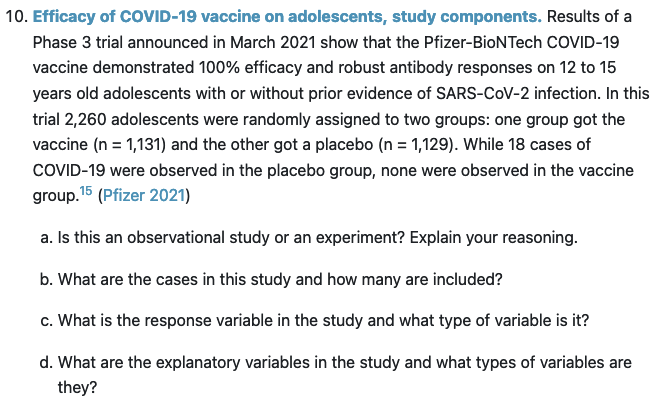
Populations and Samples
Sampling
|
 |
Target population
- The group you’re interested in
- Determined by your research question
- How is time spent on social media related to likelihood of being diagnosed with anxiety among American teenagers?
- How is a country’s spending on healthcare related to its average life expectancy?
Sample
- Who your data points are actually from
- Determined by your data set
- A survey of 2500 people recruited on the subreddit r/financialindependence
- Salary and demographic data for all employees at three engineering firms in the Midwest
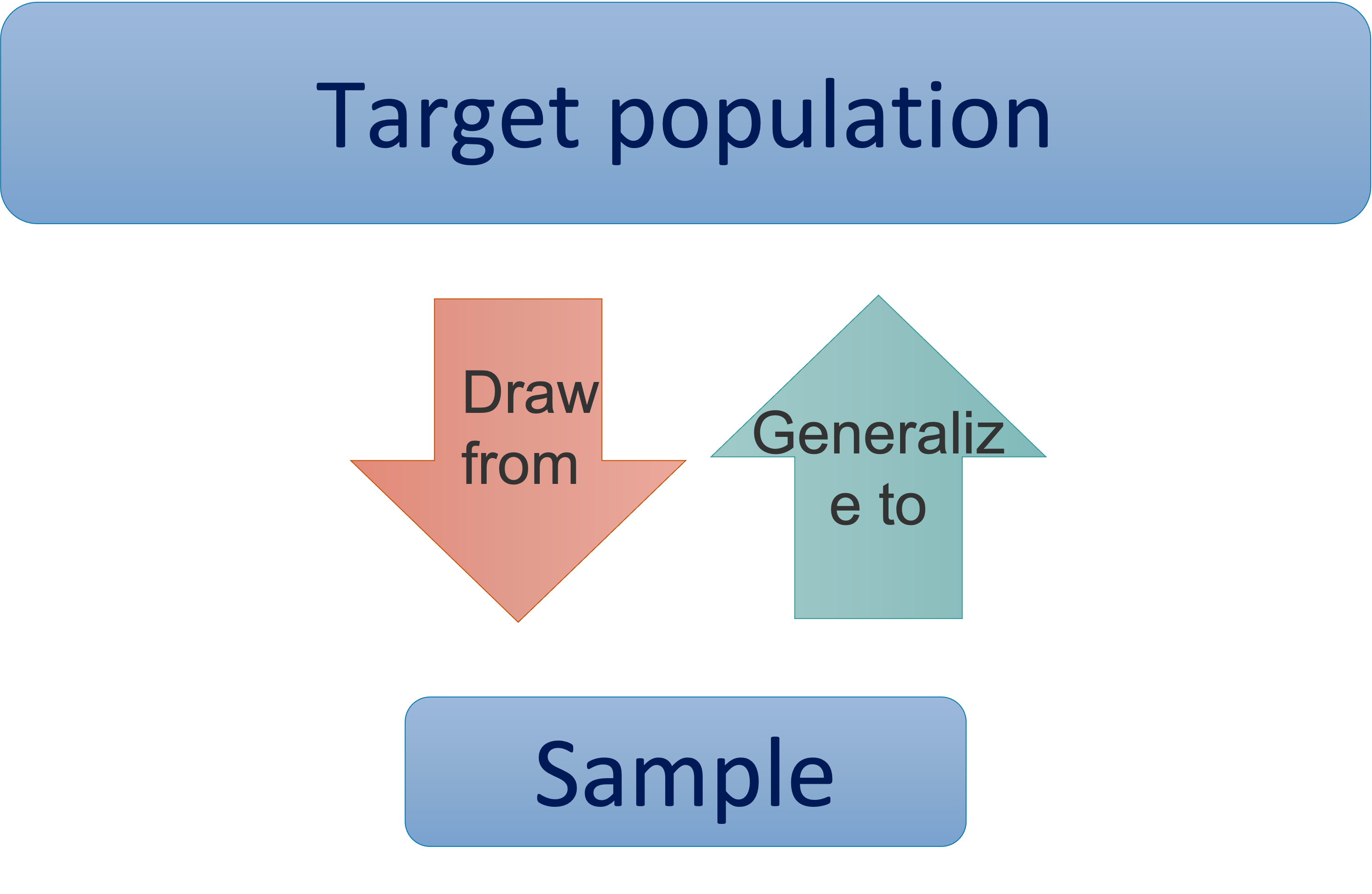
Sampling frame
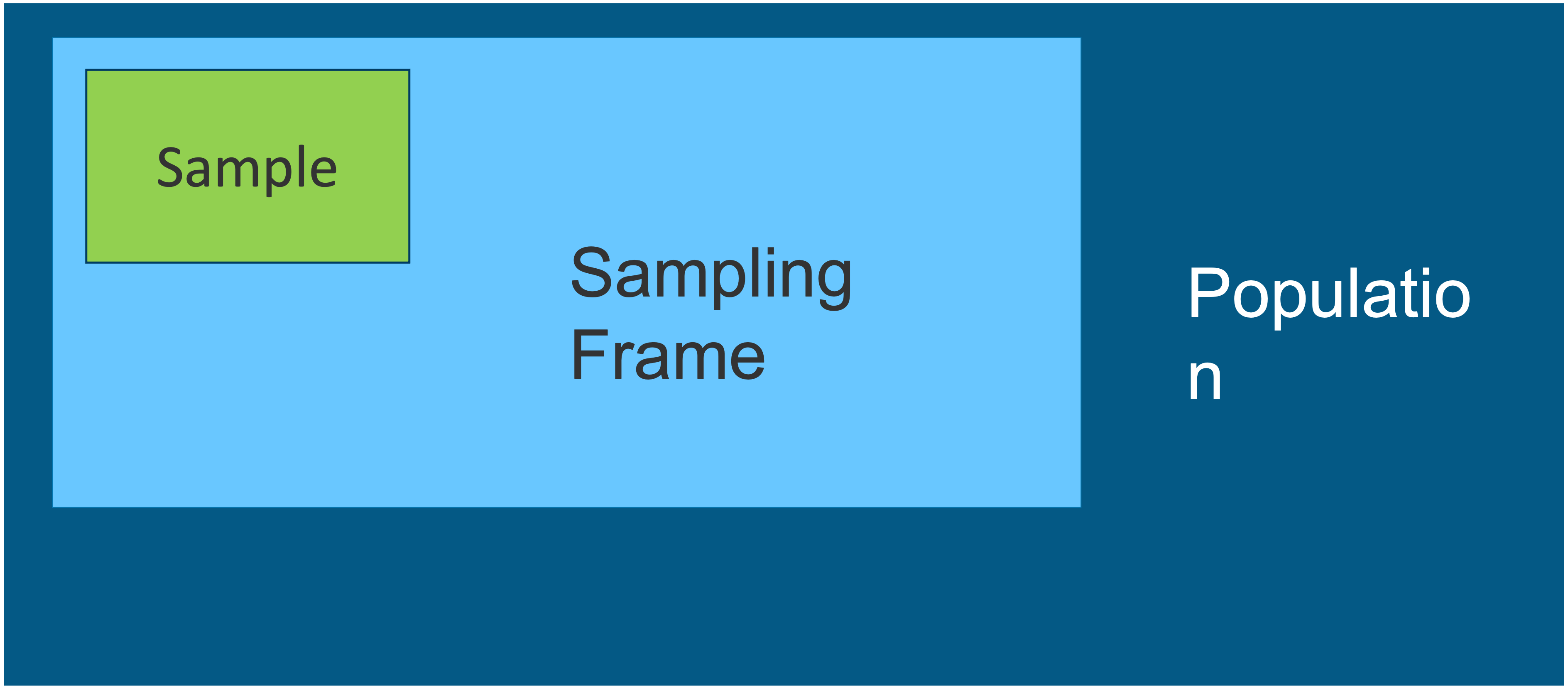
Sampling frame
- Who could have been included in your sample?
- Determined by the sampling process
- A survey emailed to all sophomores at Duke
- A survey posted on r/financialindependence
- Often this is not clearly stated in publicly available data sets :(
Random and nonrandom samples
- Random avoids bias, but it’s not always possible
- Nonrandom “convenience samples” are common

- What is the sampling frame?
Representativeness and generalizability
Representativeness: How much your sample is like the target population
Generalizability (the goal!): The idea that your sample will tell us something about a larger group than just the sample
It’s easier to argue that your results are generalizable if your data are representative
But non-representative samples can give generalizable results under the right conditions
- Does the relationship you’re interested in work differently in your sample than in the population?
This is a problem if you want to estimate mental health in the population
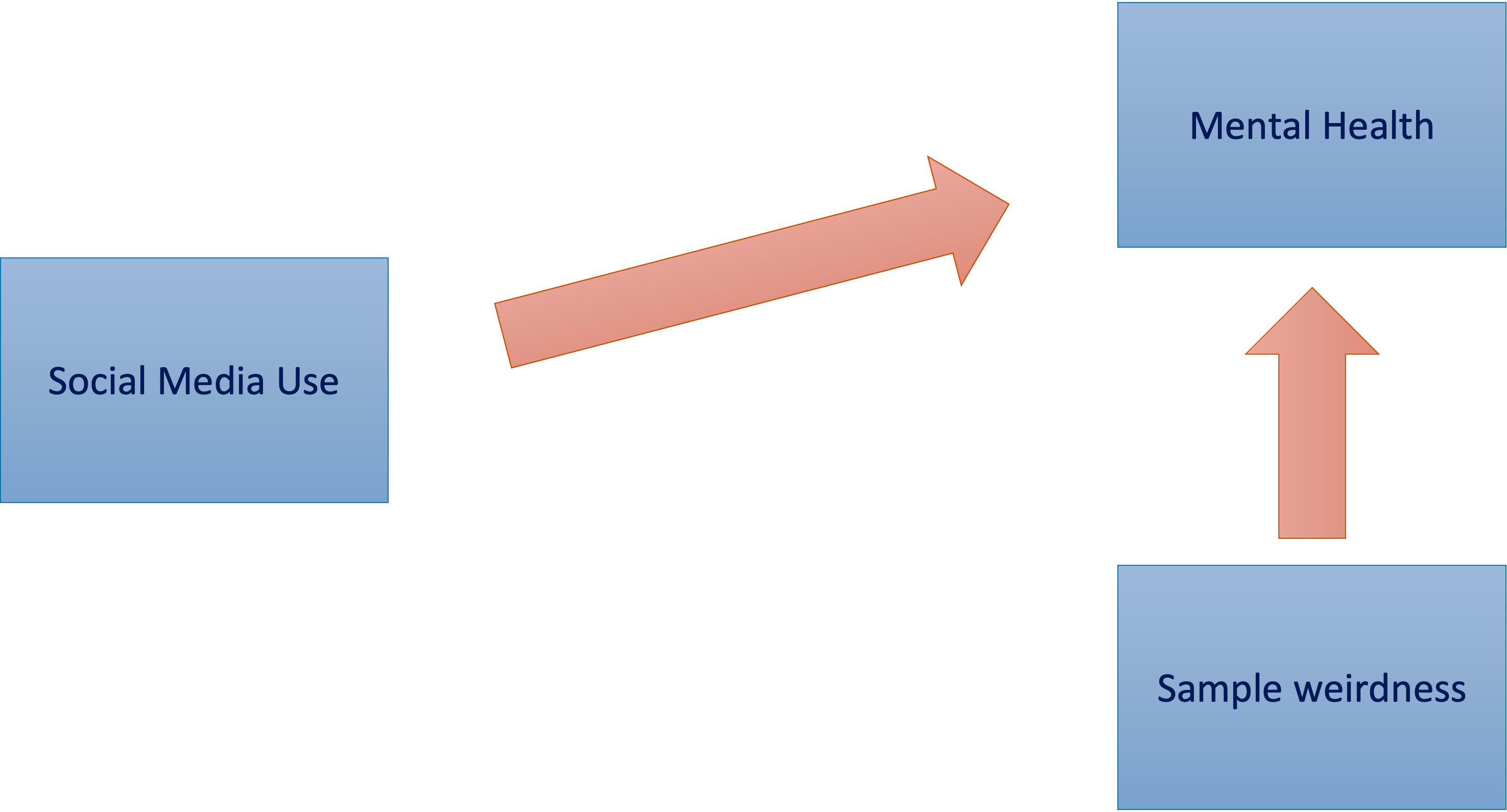
But not if you’re interested in the social media/mental health relationship

Interactions are a problem for studying relationships
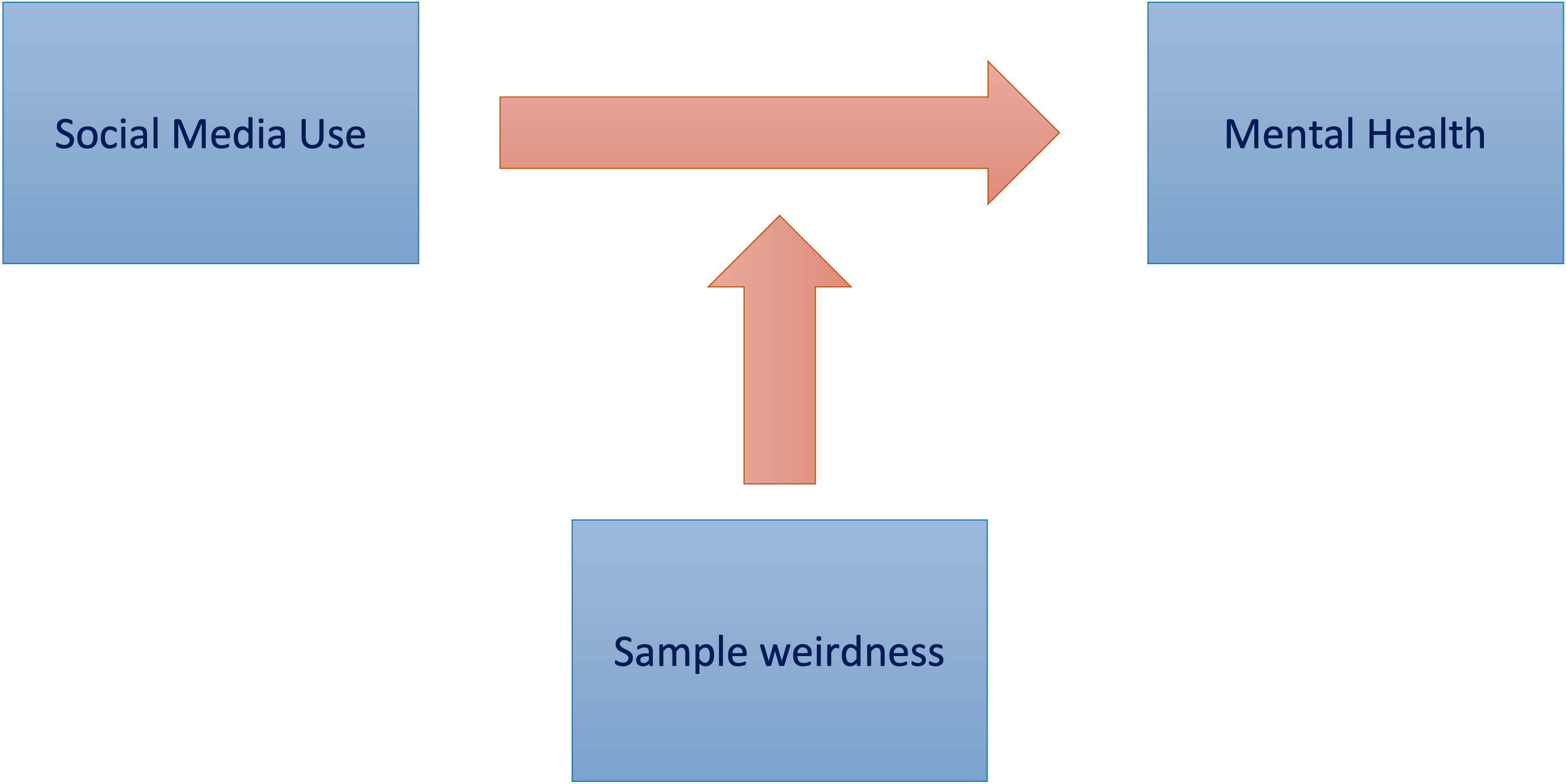
Project proposal
- Example is posted
- Instructions are shortened; bad data sets removed
- By class tomorrow: a first draft (for feedback; graded for completion only)
- Questions?
